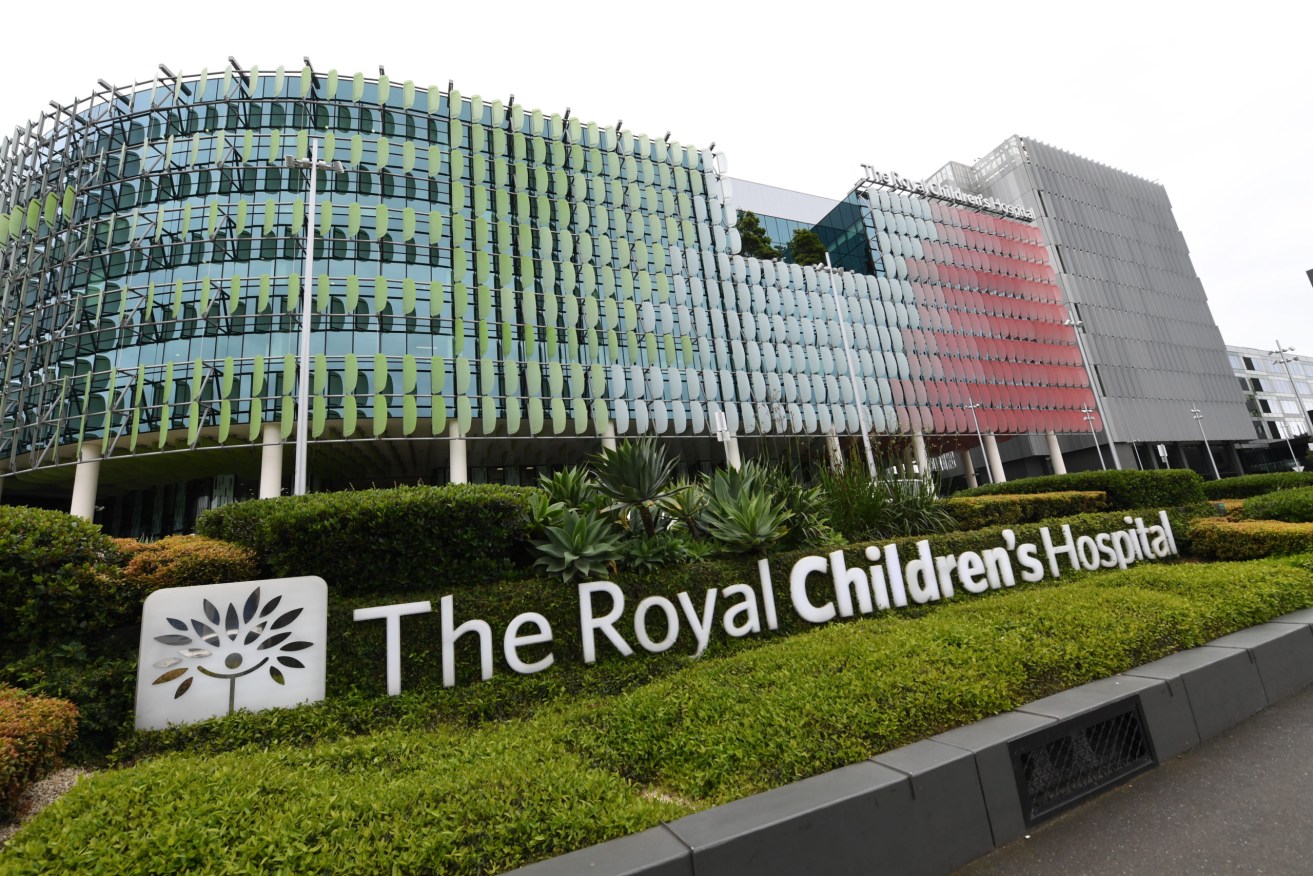SA man suing hospital over ‘negligence’ during infant heart surgery
A young South Australian man is suing the Royal Children’s Hospital and multiple doctors in Melbourne for alleged medical negligence, over a heart operation he had more than 20 years ago as a baby which he says left him with a brain injury and intellectual and physical disabilities.


Photo: James Ross/AAP
The man – who InDaily has chosen not to identify at his family’s request – has filed a civil claim in the South Australian District Court for unspecified damages over the surgery in June, 2000, when he was seven months old.
In documents lodged with the court, seen by InDaily, his lawyer says the now 21-year-old is claiming damages for “clinical negligence” arising out of arterial septal defect (ASD) surgery to his heart.
The statement of claim says he suffered low blood pressure and reduced blood circulation to his brain during the procedure “which was not detected or treated” and resulted in a brain injury causing “permanent neurological damage”.
He now requires “lifelong 24-hour care and assistance” for “profound intellectual disability” and sight problems.
The claim says that in the months after his birth at a South Australian hospital, he developed a respiratory condition and was eventually diagnosed with a heart defect called atrial septal defect – a hole in the wall between the two upper chambers of the heart.
He underwent multiple cranial ultrasounds which showed he had “a normal brain”.
In May 2000 a cardiologist at the Women’s and Children’s Hospital referred him to the RCH in Melbourne for open-heart surgery to repair the ASD.
Instead of open-heart surgery, the doctors in Melbourne decided to perform a less invasive procedure, using a catheter and new medical device that was first introduced into clinical practice in the United States in 1997.
The mother was told “the surgical catheter would result in less trauma to (her son’s) body” and that open-heart surgery would involve “cutting through (her son’s) ribs and his chest being held together by wire for the remainder of his life”.
The claim states that at no time was his mother informed that the first clinical trial of the device was reported just three years earlier or that the procedure was not commonly performed in Australia.
Nor was she told of the surgical team’s experience in performing the procedure, or that – at the time – open-heart surgery to repair this defect “was the gold standard in Australia”.
The claim states she also wasn’t told of additional risks as a result of her son’s respiratory condition.
He underwent the five-and-a-half hour operation and suffered low blood pressure “leading to metabolic acidosis”.
As a result, his lawyer says, two days later he developed neurological symptoms, including seizures and failing oxygen levels.
Five days after the surgery he had an MRI which showed a “diffuse watershed injury secondary to hypoxia that had occurred acutely within the last seven days”.
Four months later, further MRIs showed “high T2 signals consistent with gliosis and overall ischemic injury occurring during the course of the ASD surgery”.
“The MRI imaging… is consistent with a watershed pattern of injury which occurred due to a severe prolonged hypoxic ischemic insult during the surgical procedure,” the claim states.
The claim argues the RCH was negligent in several ways, including for failing to identify and treat the patient’s low blood pressure during the “lengthy” procedure.
“As a result of the negligence… the Applicant has suffered injury, loss and damage,” the claim states.
The resulting disabilities include “an overall impairment and restriction of bodily and mental functioning”.
“The Applicant has suffered pain; loss of enjoyment of the amenities of life; impairment of his ability to study; intellectual and cognitive impairment; impairment of his earning capacity; impairment of his ability to carry out domestic and household duties and to participate in social and recreational activities,” the claim states.
It says he has severe physical and cognitive disabilities “which will require the support and input of a specialised multi-disciplinary allied health team as well as various medical and surgical specialists”.
His claim for damages includes all his medical and health needs, as well as loss of income, general pain and suffering, the need for future care, counselling, household and gardening services, travel costs, a specialised wheelchair, special car and modified housing.
The claim says total damages are to be “finally assessed for negligence when the full extent of injuries can be assessed”.
A spokeswoman for the Royal Children’s Hospital said: “Given a claim has already been lodged, we will be providing no comment to this request.”




